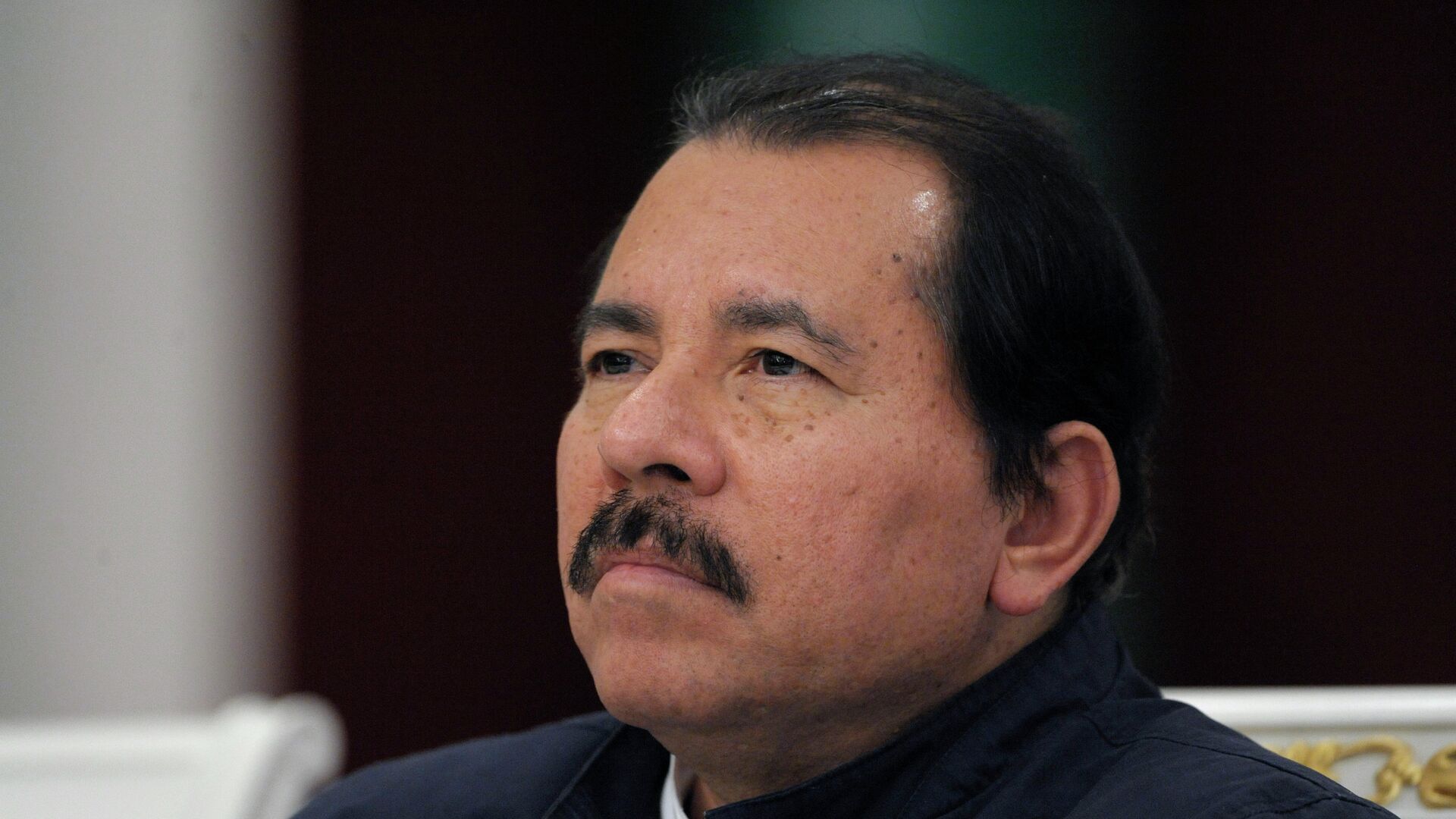https://sputnikglobe.com/20211108/incumbent-president-ortega-took-76-of-vote-in-nicaraguas-elections-preliminary-results-show-1090574957.html
Incumbent President Ortega Took 76% of Vote in Nicaragua's Elections, Preliminary Results Show
Incumbent President Ortega Took 76% of Vote in Nicaragua's Elections, Preliminary Results Show
Sputnik International
According to updated preliminary results from Sunday's presidential election, incumbent candidate President Daniel Ortega has handily won, taking 76% of the... 08.11.2021, Sputnik International
2021-11-08T20:17+0000
2021-11-08T20:17+0000
2021-11-08T21:03+0000
daniel ortega
nicaragua
latin america
https://cdn1.img.sputnikglobe.com/img/16007/81/160078115_0:0:3005:1691_1920x0_80_0_0_f0e6695b4b3629e455db518fc7c08160.jpg
The level of support shown for Ortega in the Sunday vote seems to be only slightly higher than in the 2016 elections, when he triumphed with 72.44% of the vote, and is roughly in line with opinion polls conducted several weeks before the election.Despite the arrests, five other candidates from across the political spectrum ran against Ortega, who was the candidate for the Sandinista National Liberation Front (FSLN), a democratic socialist party that has opposed US intervention in Nicaraguan affairs for more than four decades.In the lead-up to the election, the US Congress passed the Reinforcing Nicaragua’s Adherence to Conditions for Electoral Reform (RENACER) Act, which laid out a framework for crippling the Central American nation's economy by sanctioning its leaders and encouraging US President Joe Biden to remove Nicaragua from the CAFTA free trade agreement.Social media giant Meta also suspended more than 1,000 accounts on Facebook and Instagram early last week, claiming they were part of a "cross-government troll operation" by Ortega's government. Following their suspension, several of the account owners, who were journalists and Sandinista activists, spoke out, condemning the takedowns as meddling in their country's affairs and attempts to silence pro-Sandinista voices. Many of the leading internet security figures at Meta have deep connections to the US National Security State, including having been academics at US policy think tanks or former White House advisers.Ortega's FSLN first came to power in 1979 at the head of a popular revolution that threw out the US-backed Somoza dictatorship. However, facing US encirclement and a proxy war with the Contras inside the country, Nicaraguans voted Ortega out of office in 1990 in an attempt to escape US strangulation. Instead, 16 years of neoliberal rule dismantled the Sandinistas' welfare state and welcomed US foreign direct investment in local companies that made cheap goods for export in special free trade zones. By 2006, voters brought the Sandinistas back, and Ortega has won two reelections since then, not counting Sunday's vote, which is not yet official.
nicaragua
Sputnik International
feedback@sputniknews.com
+74956456601
MIA „Rossiya Segodnya“
2021
News
en_EN
Sputnik International
feedback@sputniknews.com
+74956456601
MIA „Rossiya Segodnya“
Sputnik International
feedback@sputniknews.com
+74956456601
MIA „Rossiya Segodnya“
daniel ortega, nicaragua, latin america
daniel ortega, nicaragua, latin america
Incumbent President Ortega Took 76% of Vote in Nicaragua's Elections, Preliminary Results Show
20:17 GMT 08.11.2021 (Updated: 21:03 GMT 08.11.2021) According to updated preliminary results from Sunday's presidential election, incumbent candidate President Daniel Ortega has handily won, taking 76% of the vote.
The level of support shown for Ortega in the Sunday vote seems to be only slightly higher than in the 2016 elections, when he triumphed with 72.44% of the vote, and is roughly in line with
opinion polls conducted several weeks before the election.
The US and its allies denounced the election as a sham even before it began, pointing to the arrest over the summer of more than two dozen opposition figures who were candidates in the election but had also played key roles in the
2018 anti-government riots that killed hundreds.
Despite the arrests, five other candidates from across the political spectrum ran against Ortega, who was the candidate for the Sandinista National Liberation Front (FSLN), a democratic socialist party that has opposed US intervention in Nicaraguan affairs for more than four decades.
In the lead-up to the election, the US Congress passed the Reinforcing Nicaragua’s Adherence to Conditions for Electoral Reform
(RENACER) Act, which laid out a framework for crippling the Central American nation's economy by sanctioning its leaders and encouraging US President Joe Biden to remove Nicaragua from the CAFTA free trade agreement.
A senior US State Department
official also pledged that the US would "maintain it presence" in Nicaragua after the Sunday election and expand its support for FSLN groups. The US has a long history of arming and funding anti-FSLN parties and militia groups, from the Contra guerilla fighters of the 1980s to the opposition parties
that receive aid from the National Endowment for Democracy (NED) and the US Agency for International Development (USAID).
Social media giant Meta also suspended
more than 1,000 accounts on Facebook and Instagram early last week, claiming they were part of a "cross-government troll operation" by Ortega's government. Following their suspension, several of the account owners, who were journalists and Sandinista activists,
spoke out, condemning the takedowns as meddling in their country's affairs and attempts to silence pro-Sandinista voices. Many of the leading internet security figures at Meta have deep connections to the US National Security State, including having been academics at US policy think tanks or former White House advisers.
Ortega's FSLN first came to power in 1979 at the head of a popular revolution that threw out the US-backed Somoza dictatorship. However, facing US encirclement and a proxy war with the Contras inside the country, Nicaraguans voted Ortega out of office in 1990 in an attempt to escape US strangulation. Instead, 16 years of neoliberal rule dismantled the Sandinistas' welfare state and welcomed US foreign direct investment in local companies that made cheap goods for export in special free trade zones. By 2006, voters brought the Sandinistas back, and Ortega has won two reelections since then, not counting Sunday's vote, which is not yet official.

